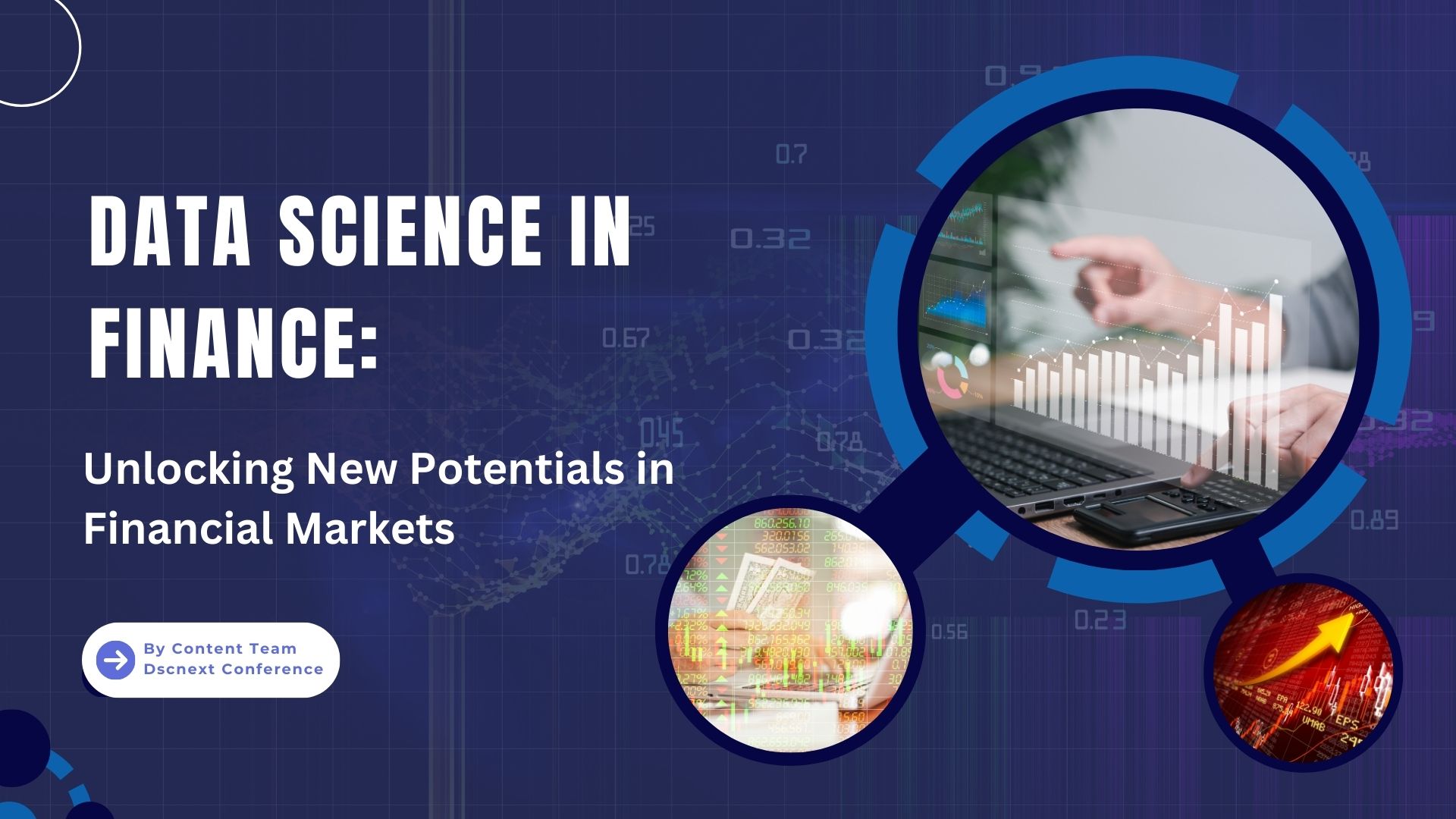
In the fast-paced world of finance, where every decision can have significant implications, data science has emerged as a transformative force. By harnessing the power of data, machine learning, and advanced analytics, financial institutions are not only refining their strategies but also uncovering new potentials that were previously unimaginable. This blog explores how data science is revolutionizing finance, the tools and techniques driving this change, and the future directions of this dynamic field.
The Rise of Data Science in Finance
Historically, financial decisions were based on gut instincts, historical trends, and qualitative analysis. However, the advent of data science has shifted this paradigm. Today, financial professionals leverage vast amounts of data and sophisticated algorithms to make more informed decisions, manage risks, and identify opportunities.
1. Enhanced Decision- Making: Data science provides a foundation for decision-making grounded in empirical evidence. By analyzing historical data and current market conditions, financial analysts can predict trends, optimize trading strategies, and improve investment decisions.
2. Risk Management: In finance, risk is an ever-present concern. Data science techniques, such as predictive modeling and stress testing, enable firms to assess and manage risk more effectively. By analyzing patterns and potential scenarios, financial institutions can anticipate and mitigate risks before they impact their portfolios.
3. Algorithmic Trading: Algorithmic trading, which relies on complex algorithms to execute trades at optimal times, has become a staple in modern finance. Data science underpins this practice by providing the tools to analyze market data in real time, identify trading signals, and automate execution.
Key Techniques and Tools in Financial Data Science
Data science in finance employs a variety of techniques and tools to analyze and interpret data. Here’s a look at some of the key methods driving innovation in the sector
1. Predictive Analytics: Predictive analytics involves using statistical techniques and machine learning models to forecast future outcomes based on historical data. In finance, predictive models can forecast stock prices, market trends, and economic indicators, providing valuable insights for investment and trading strategies.
2. Natural Language Processing (NLP): NLP enables machines to understand and process human language. In finance, NLP is used to analyze news articles, social media, and financial reports to gauge market sentiment, identify emerging trends, and extract actionable insights from unstructured data.
3. Machine Learning: Machine learning algorithms learn from data and make predictions or decisions without being explicitly programmed. Techniques such as supervised learning, unsupervised learning, and reinforcement learning are used to model complex financial systems, optimize trading strategies, and detect anomalies.
4. Big Data Analytics: Financial markets generate vast amounts of data daily. Big data analytics involves processing and analyzing large datasets to uncover patterns and insights that can inform decision-making. Tools like Hadoop and Spark are used to handle and analyze big data in real-time.
5. Quantitative Analysis: Quantitative analysts, or “quants,” use mathematical models and computational techniques to analyze financial markets. These models are used to develop trading strategies, evaluate investment opportunities, and manage risk.
Applications of Data Science in Finance
Data science has a wide range of applications in the financial sector. Here are some of the most impactful areas where data science is making a difference:
1. Fraud Detection: Data science techniques are crucial in identifying and preventing financial fraud. By analyzing transaction patterns and using anomaly detection algorithms, financial institutions can detect suspicious activities and prevent fraudulent transactions.
2. Customer Segmentation: Understanding customer behavior is key to delivering personalized financial products and services. Data science allows financial institutions to segment customers based on their behavior, preferences, and financial needs, enabling targeted marketing and improved customer service.
3. Credit Scoring: Traditional credit scoring models often rely on limited data. Data science enhances credit scoring by incorporating a wider range of data points, including social media activity and alternative financial data, to assess creditworthiness more accurately.
4. Portfolio Management: Data science aids in portfolio management by optimizing asset allocation and diversification. Algorithms analyze historical performance, market conditions, and risk factors to recommend investment strategies that align with investors’ goals.
5. Regulatory Compliance: Compliance with financial regulations is critical for avoiding legal issues and maintaining trust. Data science tools help financial institutions monitor transactions, ensure adherence to regulatory requirements, and produce reports for auditing purposes.
Challenges and Considerations
Despite its potential, the integration of data science in finance comes with its own set of challenges:
1. Data Quality: The effectiveness of data science relies heavily on the quality of data. Inaccurate or incomplete data can lead to flawed analyses and decisions. Ensuring data integrity and consistency is crucial.
2. Privacy and Security: Financial data is highly sensitive. Protecting data privacy and ensuring robust security measures are essential to prevent breaches and maintain trust with clients.
3. Model Risk: Financial models are only as good as the assumptions and data they are based on. There is always a risk that models may not accurately predict future outcomes, especially in volatile or unprecedented market conditions.
4. Regulatory Compliance: The use of data science in finance must adhere to regulatory standards. Financial institutions need to ensure that their data practices comply with legal requirements and industry regulations.
The Future of Data Science in Finance
As technology continues to advance, the role of data science in finance is set to expand further. Emerging trends and innovations are shaping the future of this field
1. Artificial Intelligence (AI): AI technologies, including deep learning and neural networks, are enhancing predictive accuracy and decision-making capabilities. AI-powered systems are expected to play a more significant role in automating complex financial tasks and improving investment strategies.
2. Blockchain and Cryptocurrencies: The rise of blockchain technology and cryptocurrencies is creating new opportunities and challenges for data science in finance. Analyzing blockchain data and understanding cryptocurrency market dynamics are becoming increasingly important.
3. Enhanced Personalization: Data science will continue to drive personalization in financial services. Advanced analytics will enable more tailored financial products and services, improving customer experience and satisfaction.
4. Ethical Considerations: As data science becomes more integral to finance, ethical considerations will gain prominence. Ensuring fairness, transparency, and accountability in data practices will be essential to maintaining trust and integrity in the financial industry.
Conclusion
Data science is revolutionizing the financial industry by providing powerful tools and techniques to analyze data, make informed decisions, and uncover new opportunities. From risk management and fraud detection to algorithmic trading and customer segmentation, the applications of data science in finance are vast and impactful. As technology continues to evolve, the potential for data science in finance will only grow, offering new possibilities for innovation and efficiency in the financial markets. Embracing data science is no longer optional but essential for staying competitive in the ever-changing world of finance.


